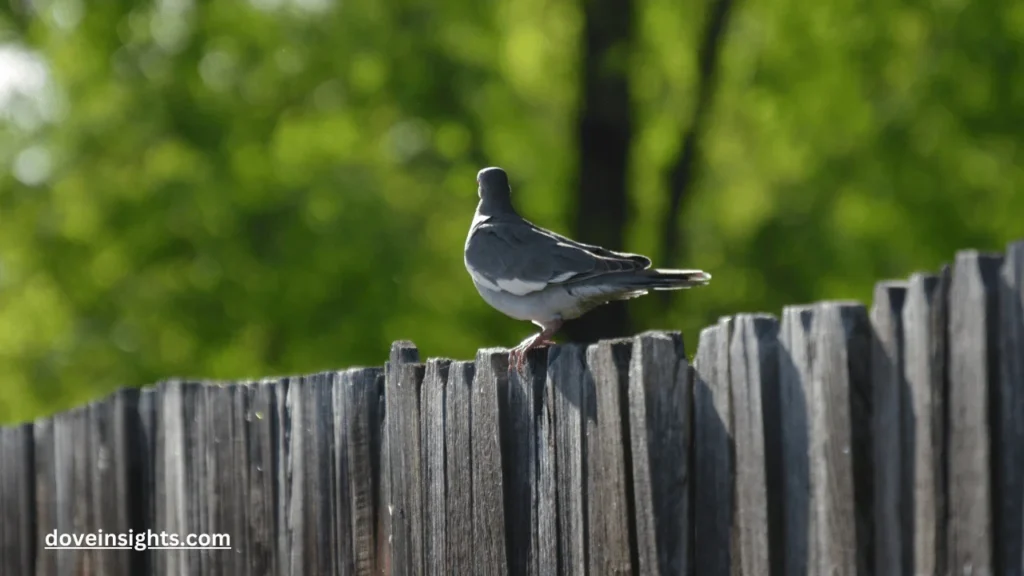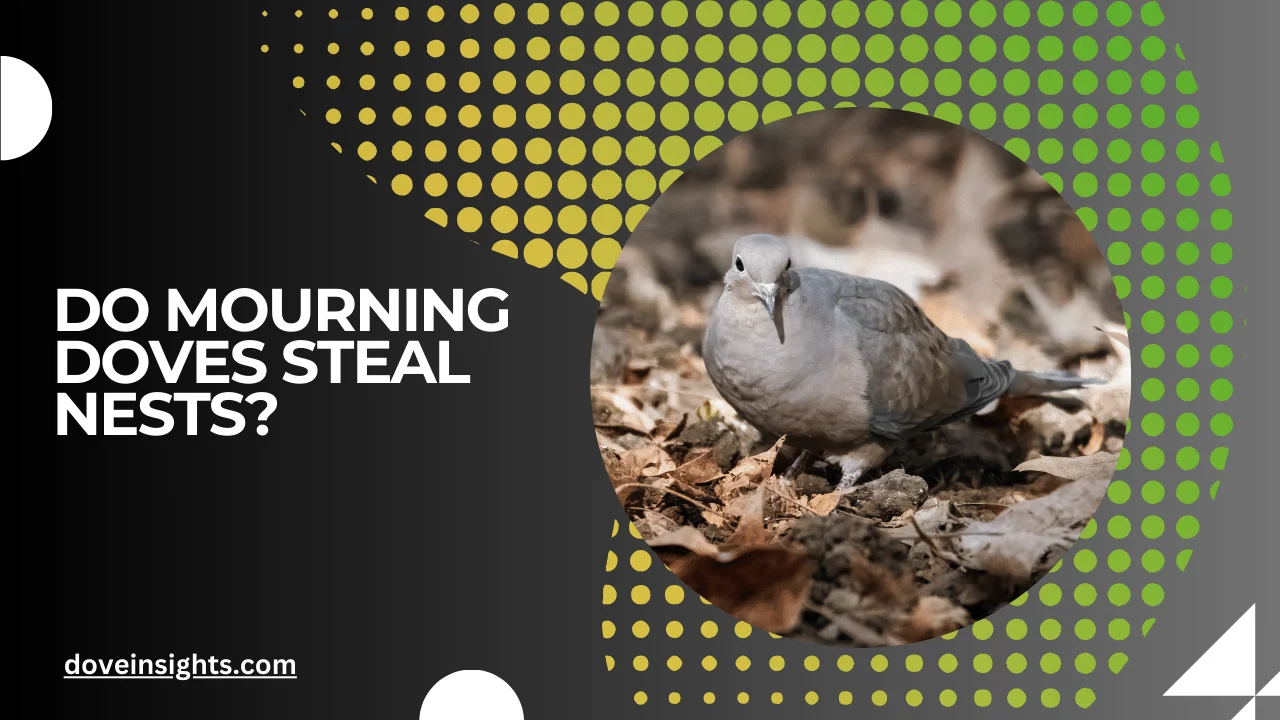Have you ever observed a mourning dove perched serenely, seemingly harmless, and wondered if these gentle birds might harbor surprising habits? While mourning doves are often seen as symbols of peace, the question of whether they steal nests introduces an intriguing mystery into their behavior.
Birds, like all creatures, must adapt to survive. This includes competing for resources such as food, mates, and even nesting sites. Could mourning doves be opportunistic enough to take over another bird’s nest, or is this behavior reserved for more aggressive species? In this article, we’ll uncover the truth about mourning doves and their nesting habits, exploring whether they engage in this behavior and why.
Contents
- 1 Understanding Mourning Dove Behavior
- 2 Do Mourning Doves Steal Nests?
- 3 Factors That Influence Nest-Stealing Behaviors
- 4 Ethical and Ecological Implications
- 5 Encouraging Peaceful Coexistence
- 6 Conclusion
- 7 FAQ’s
- 7.0.1 Do mourning doves steal nests from other birds?
- 7.0.2 Why would a mourning dove use another bird’s nest?
- 7.0.3 Are mourning doves aggressive toward other birds?
- 7.0.4 What types of nests do mourning doves use?
- 7.0.5 How can I prevent mourning doves from using other birds’ nests?
- 7.0.6 Do mourning doves build their own nests?
Understanding Mourning Dove Behavior
- Gentle nature: Mourning doves are known for their calm demeanor and non-aggressive behavior.
- Nesting habits: They often build flimsy nests in trees, shrubs, or even on man-made structures.
- Parental investment: Mourning doves are dedicated parents, often raising multiple broods in a single breeding season.
Before diving into the specifics of nest-stealing, it’s crucial to understand the general behavior of mourning doves:
Their seemingly gentle nature raises questions about whether they would engage in aggressive acts like stealing nests.
Do Mourning Doves Steal Nests?
The direct answer is that mourning doves rarely steal nests outright, but they may occupy abandoned or unused ones:
- Taking advantage of opportunity: If a nest is left empty, mourning doves may use it instead of building their own.
- Conflict avoidance: Unlike some aggressive species, mourning doves tend to avoid confrontations with other birds.
- Species comparison: Birds like house sparrows and European starlings are notorious for nest-stealing, but mourning doves rarely show such behavior.
This opportunistic behavior is different from outright theft, as it often involves unoccupied nests.
Factors That Influence Nest-Stealing Behaviors
While mourning doves are unlikely to forcefully take over nests, certain factors may influence this behavior:
- Scarcity of resources: In urban or densely populated areas, suitable nesting sites can be limited.
- Competition with other species: Mourning doves may unintentionally claim nests intended for other birds.
- Time-saving strategy: Using an existing nest allows doves to conserve energy during the breeding season.
Understanding these factors helps explain why nest-stealing, while uncommon, might occasionally occur.
Ethical and Ecological Implications
The possibility of nest-stealing by mourning doves raises important ecological and ethical questions:
- Impact on other birds: Even opportunistic use of unoccupied nests can affect local bird populations, especially if those nests were still in use.
- Balancing ecosystems: Mourning doves play a role in maintaining balance within their habitats by controlling insect populations and dispersing seeds.
- Human intervention: Providing birdhouses or safe nesting areas can reduce competition and protect all bird species.
Recognizing the delicate balance of ecosystems underscores the importance of understanding bird behavior.
Encouraging Peaceful Coexistence

Whether mourning doves steal nests or not, there are ways to ensure peaceful coexistence with these birds:
- Provide nesting options: Installing birdhouses or platforms can give mourning doves and other birds safe places to nest.
- Minimize disturbances: Avoid disturbing nesting areas during the breeding season to allow birds to raise their young peacefully.
- Appreciate their role: Mourning doves are a vital part of ecosystems, and their behavior, even when opportunistic, serves a purpose.
Promoting coexistence with mourning doves and other birds fosters a harmonious relationship with nature.
Conclusion
So, do mourning doves steal nests?
While they are not known for aggressive nest-stealing, they may opportunistically occupy abandoned or unused nests. Their behavior reflects an adaptability that helps them thrive in various environments, but it also raises interesting questions about competition and coexistence in the natural world.
By understanding mourning doves’ nesting habits and the factors that influence their behavior, we can better appreciate these graceful birds and their role in the ecosystem.
Whether building their own nests or making use of an empty one, mourning doves remind us of nature’s resilience and adaptability.
FAQ’s
Do mourning doves steal nests from other birds?
Mourning doves rarely steal nests but may occupy abandoned or unused ones.
Why would a mourning dove use another bird’s nest?
Using an existing nest saves time and energy, especially during the breeding season.
Are mourning doves aggressive toward other birds?
Mourning doves are generally non-aggressive and avoid conflicts with other birds.
What types of nests do mourning doves use?
Mourning doves prefer simple, open nests in trees, shrubs, or on man-made structures.
How can I prevent mourning doves from using other birds’ nests?
Providing additional nesting options, such as birdhouses, can reduce competition for nests.
Do mourning doves build their own nests?
Yes, mourning doves typically build their own nests, but they may reuse existing ones if available.








